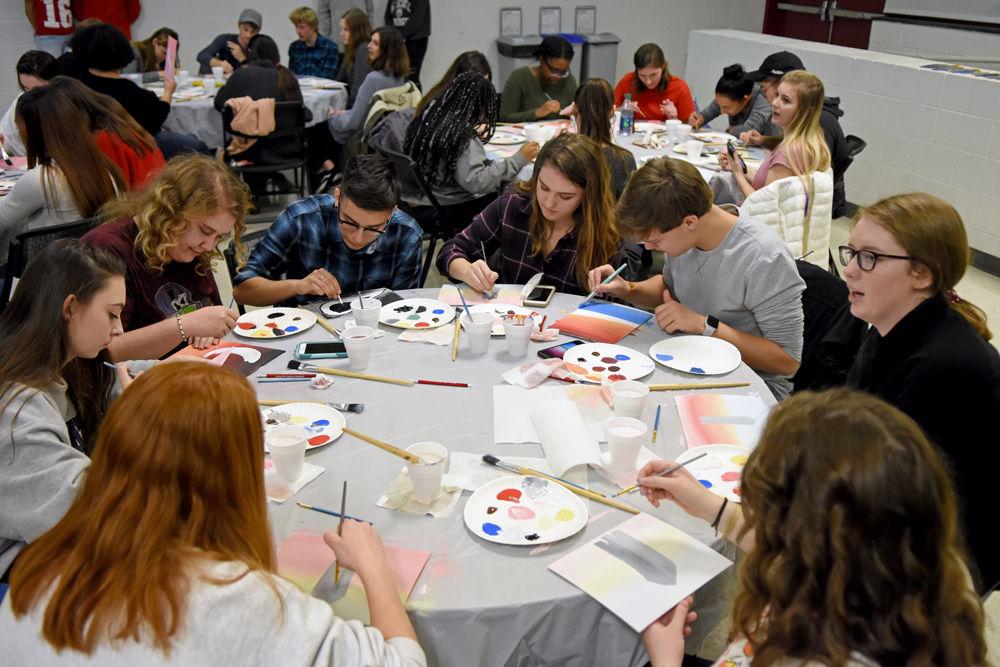Roughly 20% of NC State’s student body is composed of transfer students. That means one-fifth of NC State’s student population shares the anxiety, excitement and endless possibilities that come with transferring.
While transferring is not an easy decision, it does give students more time and options to choose the academic path that is right for them. Ruairi Gallagher, a second-year studying computer science, transferred from Durham Technical Community College after getting his associate degree because it was more cost-efficient and gave him time to improve his grades at another school.
“I moved just before high school, so I wasn’t really in the best headspace to sort of perform academically in the way that I wanted to,” Gallagher said. “And so when I entered high school, I didn’t really have the grades that I wanted in order to go to the schools that I wanted to go to, so I took a gap year. And then I thought the best idea for me would be to complete an [associate].”
Savvy McCracken, a third-year studying zoology, transferred after trying several other schools because she wanted a top-notch zoology program.
“The entire time, NC State was my end goal because the zoology program here is one of the better in the country,” McCracken said. “I transferred to Wake Tech here in Raleigh to have more transferable credits when I eventually did get into NC State.”
McCracken said the campus’ large size and student body surprised her after transferring from a smaller school.
“NC State is very much unlike any college I’ve been to before,” McCracken said. “There’s a really, really diverse cast of characters here, … but on the other hand, you lose some of the intimacy of smaller classes. … But we also have access to so many amazing facilities and really advanced technology, … so I think that it’s a land of opportunity, where you sacrifice maybe a close-knit sense of community.”
Unlike traditional first-year students, transfer students have the benefit of starting at NC State with prior knowledge of the college experience. McCracken said transfer students understand the expectations of college-level classes and know how to be responsible for themselves, which softens the transition of starting at a new school.
“I think that [starting college] is a culture shock for anyone,” McCracken said. “But sometimes transfer students have the advantage of coming from another big school, and so being kind of used to that. … I’m more grown than I was as a freshman, so I have the advantage of being a little bit more responsible and taking my classes more seriously.”
NC State can be intimidating. For transfer students, there’s an added element of social anxiety, Gallagher said.
“I was a bit anxious about the whole ordeal,” Gallagher said. “Would I fit in? Would I be accepted coming from a different sort of background in terms of how I got here?”
Gallagher said some transfer students experience a sense of imposter syndrome.
“I mean, [transfer students] came here a different way,” Gallagher said. “But [we] didn’t come here wrongly or falsely. … You worked just as hard, if not harder, in some cases, than some of the people that got here from high school.”
McCracken said first-years have the benefit of coming in as new students together, which can make the social transition easier. Transfer students, however, lack that common experience with other upperclassmen.
“When you come in as a sophomore, a junior, and you’re not among people who are new, … everybody seems like they’re familiar with the campus and have their own friend groups and know what’s going on,” McCracken said.
Another bump in the road to transferring is support for transfer students can be varied. Gallagher said he felt transfer student orientation was impersonal and ineffective, as NC State has to accommodate such a diverse group of students in one day. Beyond orientation, McCracken said having many different advisors, as opposed to one accessible advisor, makes it difficult to handle the transfer process.
McCracken said there are resources and communities for transfer students, if you know where to look. For example, McCracken serves as a peer mentor for transfer students in the College of Sciences, where she hosts events specifically for transfer students.
However, transfer students have to take the first step to find these resources and go to these events and clubs. Both Gallagher and McCracken emphasized that the NC State experience is made by the unique opportunities our campus offers, and transfer students will get the most out of their experience if they put themselves out there.
“[NC State] is a huge school of 45,000 people,” Gallagher said. “If you have a really awkward interaction with someone, who cares? There’s 44,999 other people that you can try and get to know. I understand that that’s easier for some than others, … but you have two years less than other people if you’ve finished an [associate degree], so you’ll regret it if you don’t try it.”
McCracken said transfer students can find their niche in many places — it just takes some trial and error.
“The biggest thing that will help you in the long run is not just going to classes, but going to those events, [going] to the club meetings,” McCracken said. “… You will find that sense of belonging because I truly do believe that everybody belongs to NC State, especially transfers.”








